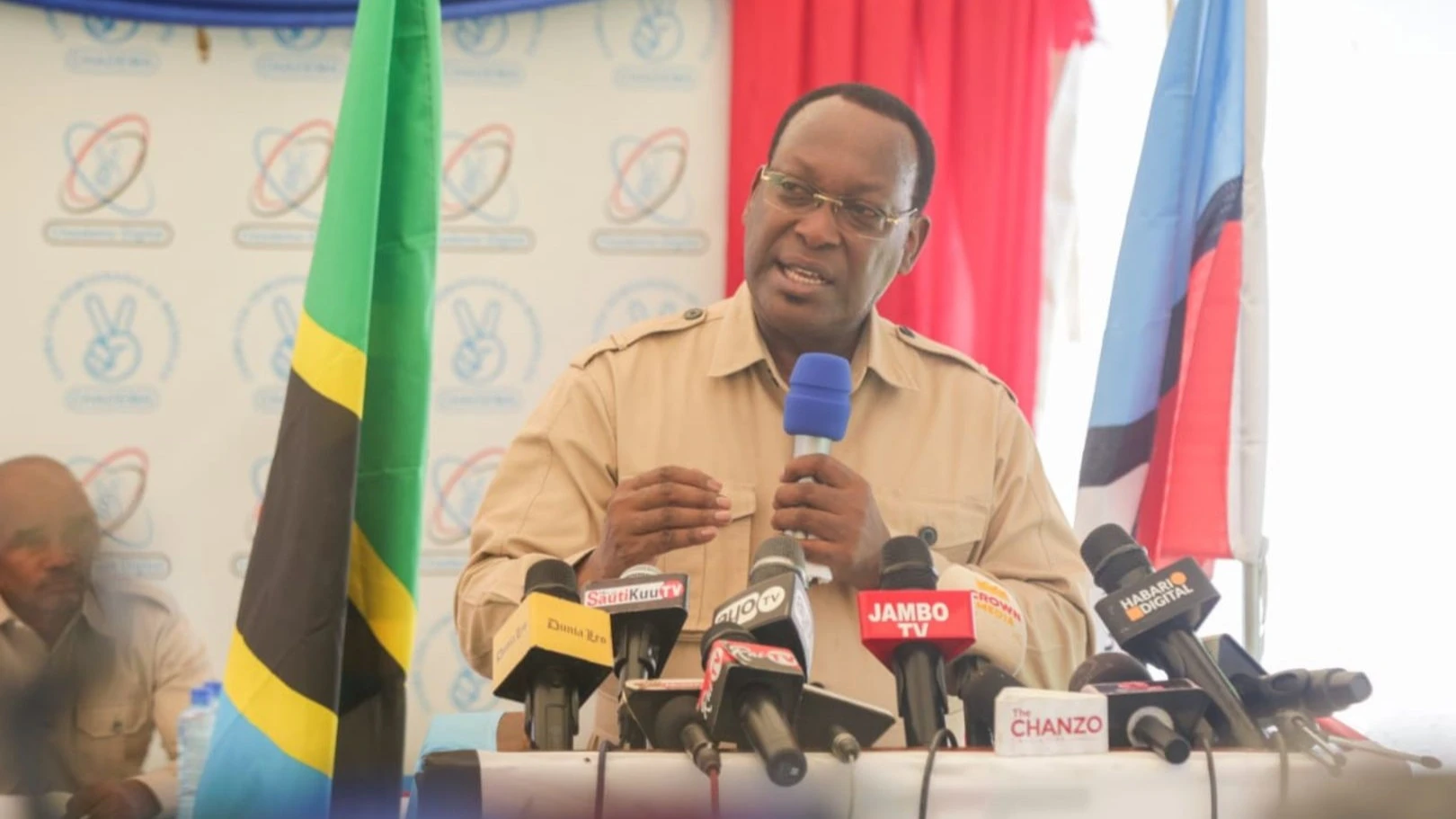Ending child marriage: Authorities in Kongwa affirm vigorous approaches

IN efforts to curb child marriages, authorities in Kongwa District, Dodoma Region, have put in place robust strategies to ensure that girls remain safe and achieve their full potential.
Tanzania is one of the countries with the highest child marriage prevalence rates in the world, where almost two out of five girls are married before their 18th birthday. The Dodoma Region is particularly affected, with reports indicating that 51 per cent of girls are married off before they turn 18, often linked to factors such as teenage pregnancies.
According to the 2015/2016 Tanzania Demographic and Health Survey (TDHS), 36 percent of girls in Tanzania are married before the age of 18, with the highest rates found in Shinyanga (59 per cent), Tabora (58 per cent), Mara (55 per cent), and Dodoma (51 per cent).
Speaking recently, Kongwa District Executive Director (DED) Dr Omary Nkullo admitted that many parents are still sending off their children to husbands despite their young age, but the government continues to heighten strategies to curb this vice.
During a recent engagement with the Tanzania End Child Marriage Network (TECMN) as the network concluded its caravan tour to four regions, including Mara, Shinyanga, Tabora, and Dodoma, the DED called for increased collaboration to address the challenge and keep girls safe.
He stated that child marriage in the district is largely driven by income poverty as well as low awareness among parents regarding the impacts of adolescent marriages.
He noted that societal pressures often force young girls into marriage upon becoming pregnant.
“The major issue we face here is teenage pregnancies, which ultimately lead to child marriages. Parents frequently pressure young boys to marry the girls they have impregnated, even when the girls are very young. We must address both these issues,” he stated.
He shared a specific example of a successful intervention in a village where a marriage involving a young girl who had dropped out of school was halted.
“We received information about a planned wedding for a girl who had been expelled from school. I contacted the District Commissioner for assistance. Using a council vehicle to avoid attracting attention, we intervened just as the wedding was about to take place, leading the groom and his family to flee,” he recounted.
While they managed to apprehend the bride and her family, they faced challenges in pursuing legal action due to insufficient evidence.
Dr Nkullo attributed the rise in teenage pregnancies to the influence of local youth rather than peer pressure from schoolmates.
“In towns like Kibaigwa, the influx of people creates an environment that can lure young girls into these situations. Poverty often plays a role in persuading girls to accept such relationships,” he said.
He also mentioned that authorities have employed efforts to combat agents who have been taking girls in villages to work in towns.
The DED further emphasised that efforts deployed to combat child marriage should go hand in hand with curbing early pregnancies.
He highlighted the lack of awareness among parents regarding the consequences of child marriages and teenage pregnancies, underscoring the urgent need for education on these issues.
To tackle the problems, the district council also provides loans through the Tanzania Social Action Fund (TASAF) projects aimed at economically empowering girls aged 15 to 24. The objective is to alleviate the economic pressures that may lead to poor decision-making.
In addition to the loans, the council also offers funding targeted at women, youth, and individuals with disabilities, helping to improve their economic status and prevent families from marrying off their daughters prematurely.
Regarding the Marriage Act of 1971, Dr Nkullo noted an urgent need for legislative reform, which should go hand in hand with programmes to end early pregnancies.
“The current law allows girls to marry at 15 with parental consent, which is far too young, especially for those still in school. It is high time we amended this law to reflect the societal changes that have occurred since the 1970s,” he asserted.
In Sejeli Village in the district, local leadership has established a special system that requires families and couples to seek a permit before marriage ceremonies.
This, according to the leaders, is a new effort aimed at curbing early marriages, which are on the rise.
Sejeli Village Chairman, Amoas Mwigoma, stated that local leadership stands firm in combating child marriage.
“We have a number of measures, including monitoring every marriage that occurs here to ensure that the couples are of the right age and not otherwise,” he said.
On their part, girls who lead the fight against child marriage in the country urged the government to amend the Marriage Act of 1971 to enable female children to achieve their dreams.
They advocated for the legal marriage age to be set at 18, rather than the current provisions that allow girls as young as 15 to marry with court approval or parental consent.
According to the Law of Marriage Act, the minimum age for marriage in Tanzania is 15 years for girls (with parental consent) and 18 years for boys.
Additionally, the girls requested that the government actively enforce laws aimed at protecting children from child marriage and increase investment in programmes and services that help prevent and eliminate such practices.
Leila Khatib, a girl from Dar es Salaam, stated that an urgent government decision to amend the law would help, as the majority of girls are unable to realise their dreams due to early marriage.
“Apart from national and international agreements to protect the rights of the girl child, the government has yet to implement strong laws to ensure that girls remain safe throughout their lives,” she said.
Veronica Shadrack from Mara Region asserted that the practice not only violates children’s rights but also places them at significant risk of sexual, physical, psychological, and economic abuse
Shadrack, who is one of the survivors of child marriage, remarked that many young girls who are married at an early age become trapped in a cycle of poverty.
“When girls marry young, they are often pressured to have children early, which causes serious health issues because their bodies are not fully developed to handle pregnancy and childbirth,” she said.
Mwajabu Hassan from Tabora added that child marriages perpetuate a cycle of violence and undermine the overall wellbeing of victims.
“Under both national and international laws, the Tanzanian government has a duty to protect children from such marriages. The Law of the Child Act of 2009, along with international agreements, provides clear directives to protect children from harmful customs and practices,” she said.
Liliani Kimati, TECMN coordinator, expressed concern that the reasons hindering changes to the marriage law remain unclear, despite a High Court ruling in favour of such amendments.
Kimati noted that significant challenges in understanding issues related to child marriage still exist.
She pointed out that the practice of marrying off young children continues at alarming levels and called for various stakeholders to intensify efforts to combat it.
She explained that this year’s caravan aimed to raise awareness about the dangers of child marriage and advocate for changes to the Marriage Act. She highlighted the community's struggle to understand the implications of legal reforms, stressing the importance of involving activists in these discussions.
“After completing the caravan, we discovered a significant gap in understanding child marriage issues within the community. Despite efforts from government leaders, there is still a pressing need to educate the public about the changes to the Marriage Act of 1971,” she said.
The tour in the regions was represented by six of the 87 organisations that form TECMN, including Msichana Initiative, My Legacy, Medea, Plan International, Theatre Arts Feminist Group, and Binti Makini Foundation.
Top Headlines
© 2024 IPPMEDIA.COM. ALL RIGHTS RESERVED

























